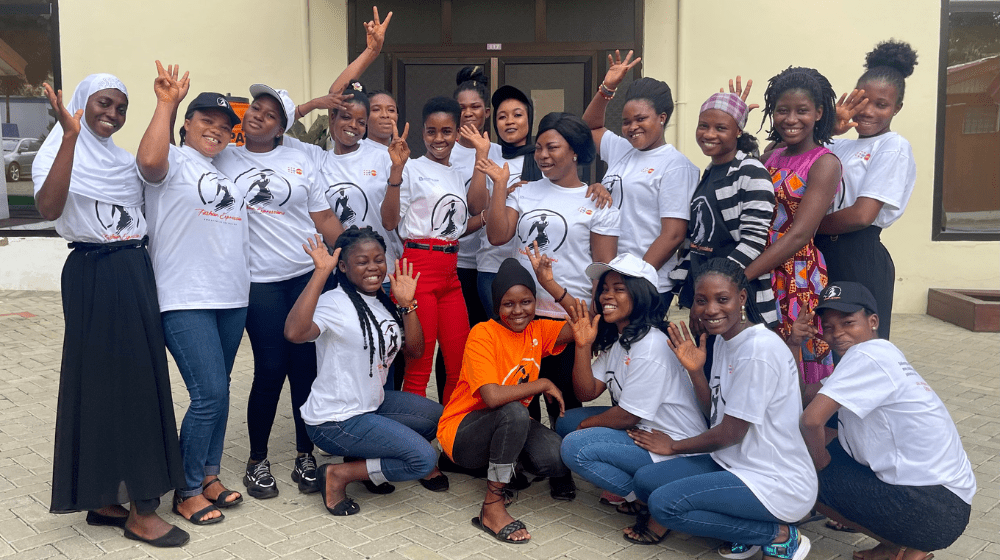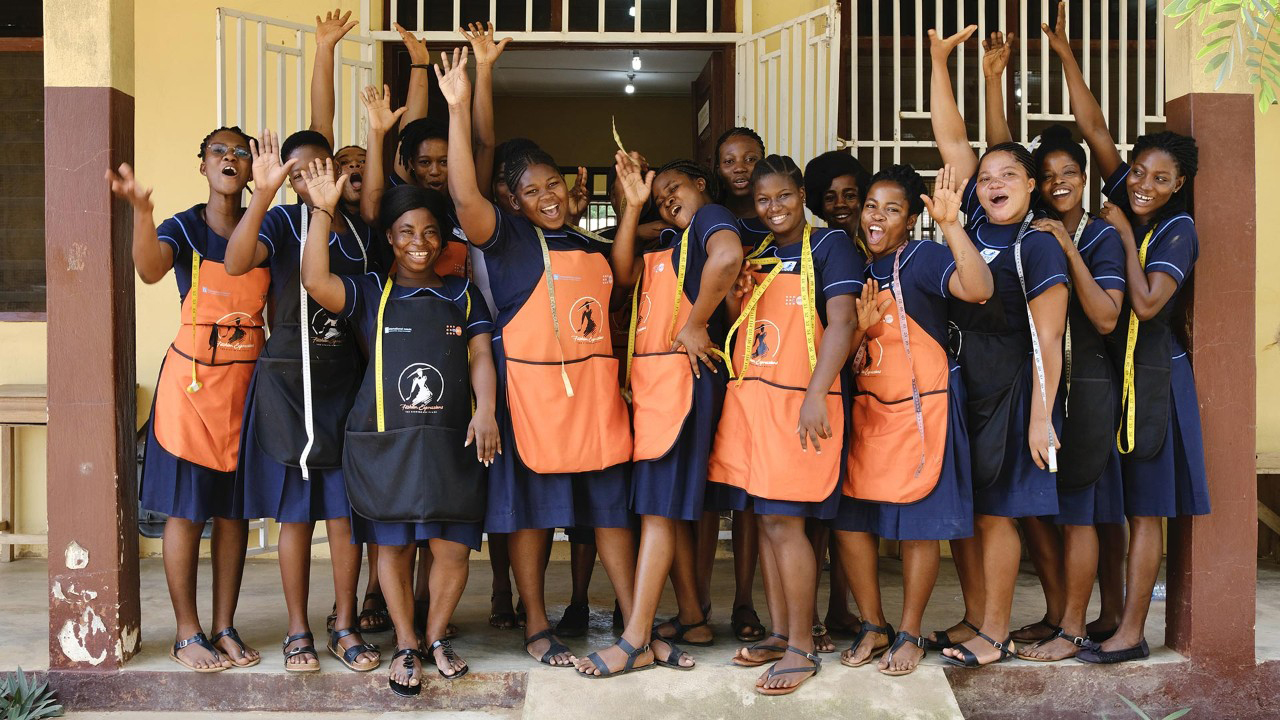
Beneficiaries of the pilot project, “Fashion Expressions: The Stories She Wears” in Adidome, Volta Region.
A Case for Women Empowerment
Goal 5 of the United Nations (UN) Sustainable Development Goals (SDGs) aims to achieve gender equality by 2030. On the surface, it means ensuring that long decades of inequality are undone by measures to adequately include women in development processes by empowering them with the agency, skills and knowledge to boldly create their future and fulfill their potential.
This, with no measure of doubt, has been the challenge of Governments and International Development practitioners. Designing the solutions that ensure women and girls are not left behind have never been more daunting in the face of global challenges like reduced development financing, conflicts leading to displacement of people everywhere and pandemics that erode national economic gains.
The silver lining in these clouds of challenges come when non-traditional actors, in this case, the private sector get involved to solve common problems plaguing the world andits nations. For Ghana and Kenya, efforts to achieve gender equality were given a boost, when the Prada Group, a global fashion conglomerate, decided to work in partnership with UNFPA to pilot a project: ‘Fashion Expressions: The Stories She Wears’, to give women another viable avenue to assert themselves and boldly claim their sexual and reproductive health and rights while making a meaningful living.
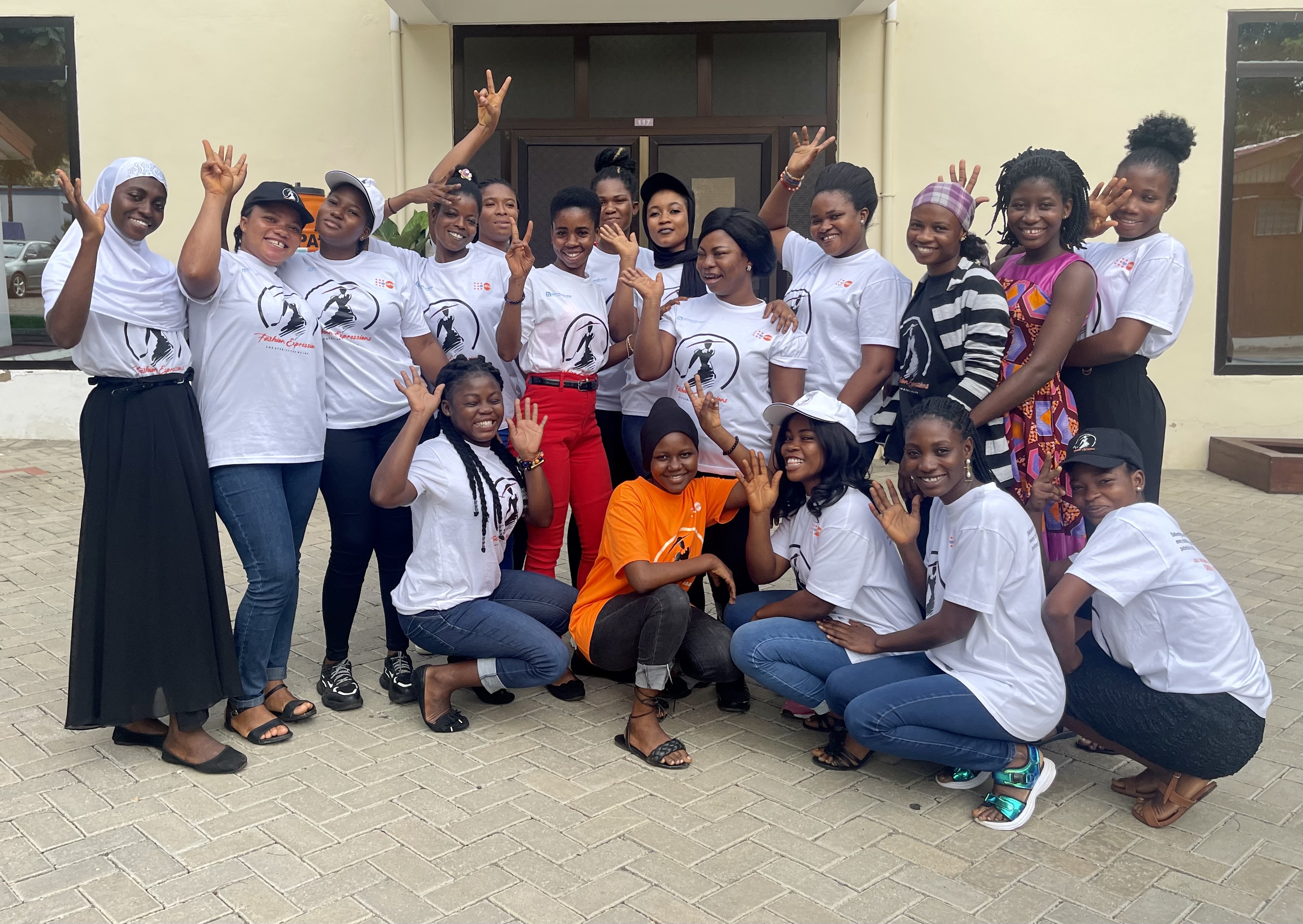
Some beneficiaries of the pilot, “Fashion Expressions: The Stories She Wears” programme drawn from various regions across Ghana.
The Fashion Expressions Project
In 2021, UNFPA & the Prada Group went into a formal partnership by May 2022, the training pilot was launched with two cohorts of young women in Ghana and Kenya. For the next six (6) months, they were going to receive hands-on training and knowledge in fashion design and the fashion industry.
The programme basically aims to leverage the social and economic power of fashion as a vehicle to promote women’s empowerment and sexual and reproductive health. In addition, it seeks to foster a deeper understanding of sexual and reproductive rights and reduce the vulnerability of participants to gendered inequalities and harmful practices.
Progress Made
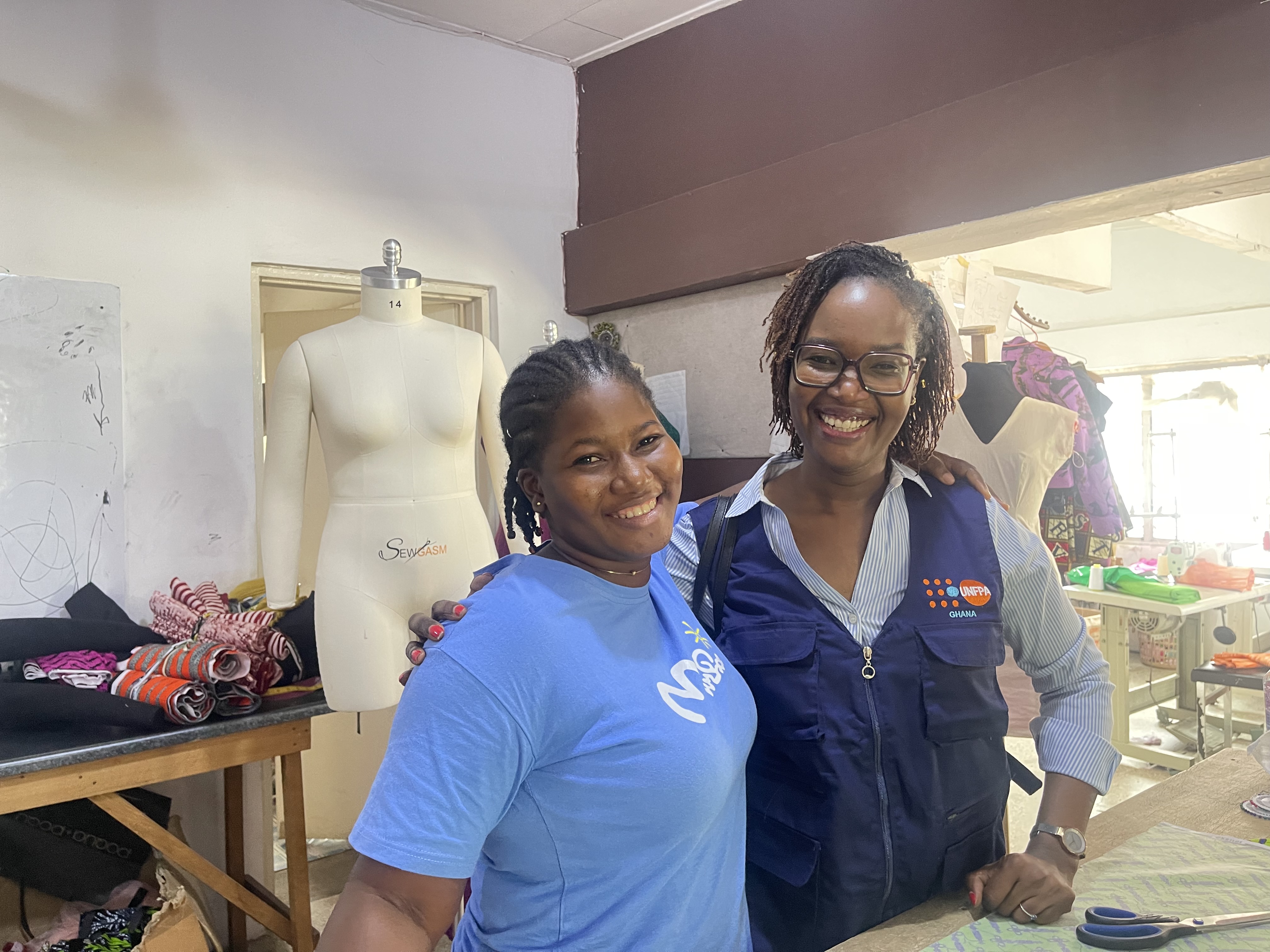
Ms. Ziddah Asiwome, a beneficiary of the Fashion Expressions project in a shot with the UNFPA Ghana Deputy Representative, Emmily Naphambo, Ph.D. during a visit to the fashion house of Poqua Poqu.
As part of the programme, the young women after receiving their training were given opportunities to take internships and industrial attachments with fashion brands to enhance their skills and make them industry-ready. To monitor the effectiveness of the approach, the UNFPA Ghana Deputy Representative, Ms. Emmily Naphambo, paid working visits to Poqua Poqu in Osu and Kua Designs in Labone, all suburbs within the Greater Accra Region to assess the ongoing internships the beneficiaries of the project were taking and how it was having an impact on them.
Working with brands
When the team from the Country Office visited some of the existing businesses the young female beneficiaries of the project were taking their industrial attachment, the girls could be seen working intently. Speaking to the CEO of the Poqua Poqu brand, Mrs. Poqua Mouhtiseb explained that she was delighted at the partnership and found the girls hardworking and willing to learn. ‘At the end of the day, this partnership is a win-win one’, she disclosed.
At the KUA showroom in Labone, the girls, Shamsia and Alice, were assisting with work and informed the monitoring them that it has been a good experience for them so far, knowing they could have been having a more difficult life on the street. Alice, who is 23 years old said: “I am learning a lot that can help my life, like knowing how to deal with customers and also, the fashion industry.”
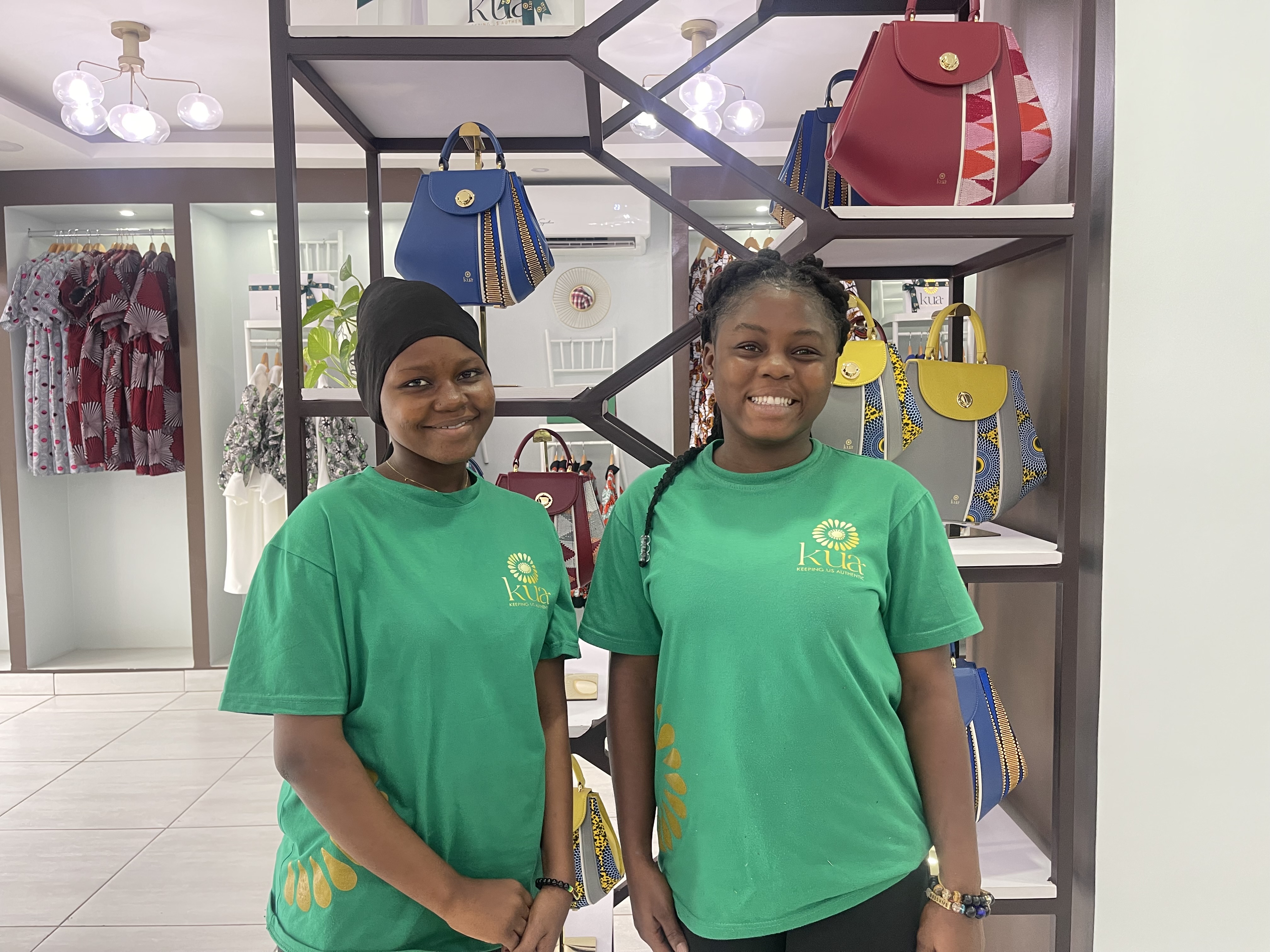
Beneficiaries of the Fashion Expressions project, Alice (right) and Shamsia (left) at the KUA Designs showroom in Labone, Accra, where they are currently on industrial attachment.
For some of the young women, like the adolescent mothers, the intervention by UNFPA and PRADA has proven to be a real lifeline for them to have a second chance at success in life. Undeniably, it is a vehicle for their empowerment, dignity and wellbeing.

